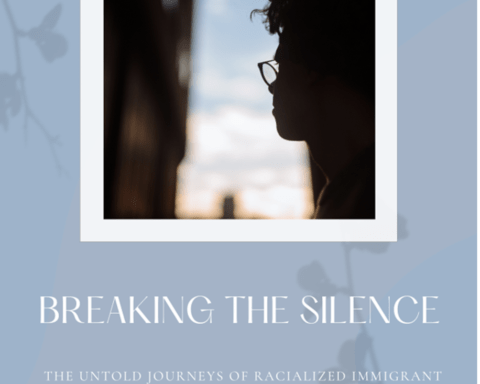Asking seniors subtle questions about their daily routines opens up dialogue – and can point to signs of elder abuse, which rarely reveals itself in obvious ways.
Nirpal Bhangoo-Sekhon often asks seniors she meets about what they’ve been eating, who handles their finances and if their basic needs are being met. It is her job as case manager of the Punjabi Community Health Services (PCHS) to be curious.
“Unfortunately, if we don’t ask those questions, we wouldn’t know what’s happening,” she says. “It gives you a better picture of what goes on at home.”
Abuse isn’t limited to physical violence; it can extend to the withholding of financial resources, verbal threats and isolation from the household.
In a 2009 report, Statistics Canada found that two-thirds of seniors who experienced family violence – physical force or threats – didn’t sustain injuries. Seniors most at risk, based on reports to the police, are between 65 and 74.
During her one-on-one meetings with seniors, Bhangoo-Sekhon will also illustrate scenarios to raise awareness of how common an issue elder abuse is. Holding such conversations regularly helps ease reservations about breaking their silence, which can take months, if not longer, she says.
Reluctance to speak up
While elder abuse cuts across different cultural groups, they may contend with different obstacles.
Language barriers and distrust in the police – mostly worries about being deported – aren’t the only concerns stacked heavily against the decision to come forward, says Kripa Sekhar, the executive director of the South Asian Women’s Centre (SAWC) in Toronto.
There’s the perception that speaking out would fracture family ties and bring shame on the community.
“I don’t think they want to be seen as a community that’s going to expose their families or seen as betraying their families,” says Sekhar. “They’ve almost accepted that ‘this is what’s meant for me.’”
Cultural groups have different attitudes about what constitutes abuse.
Burial customs can also play a role in the struggle to come forward for seniors of certain faiths.
With funeral rites traditionally being the responsibility of the son or a male family member, some express concern that their spiritual needs will not be looked after if they speak out, says Sekhar. “They’re not worried about today. They’re worried about the afterlife. It’s hard to understand that – you’re struggling in this life, but it’s such a part of who they are.”
Abuse isn’t limited to physical violence; it can extend to the withholding of financial resources, verbal threats and isolation from the household, she explains.
Statistical profiles on elder abuse as it relates to the South Asian community aren’t traced by front-line agencies such as the police and social services. Statistics Canada instead analyzes the prevalence of family violence along gender lines, while acknowledging that cultural groups have different attitudes about what constitutes abuse.
Possibilities for intervention
The immediate response to cases of physical abuse might be to find alternative housing, but in other instances, intervention through education is crucial, says Bhangoo-Sekhon.
“If we can go in and educate the families – that, in the end, would be much more helpful and useful for the community than just pulling seniors out [of the home] and placing them in shelters,” she says.
Finding subsidized housing or placing elders in shelters isn’t always the most feasible solution in cases of neglect or isolation, particularly if they’re not used to living independently and are in need of a personal support worker, she says.
PCHS has a caregiver support program, an extension of its efforts to address elder abuse, which is offered to those who are caring for family members. It is intended to relieve the strain of household demands. The program attempts to engender a culture of empathy, recognizing that the caregiver may be stressed, while getting him or her to understand the vulnerabilities that seniors face.
“We help them understand the aging process,” says Bhangoo-Sekhon, adding that changes in a senior’s behaviour may create friction within the family if it’s not recognized as a health issue.
“Housing for seniors should be guaranteed. They need enough funding to live in dignity.”
“[It’s to help] them understand what’s happening to their body, their brain, and that’s out of their control.”
Networks for seniors living alone
SAWC, through its community network, tries to locate housing for seniors so they can live independently, but finding affordable housing can take an average of seven years, according to the Ontario Non-Profit Housing Association. Thirty per cent of seniors make up the wait list, as cited by the Toronto Star from the organization’s 2015 report.
Sekhar communicates regularly with seniors who live independently and tries to ensure that their landlords are responsive to building safety issues. “Many say they do that, but their concerns aren’t always attended to,” she says.
SAWC holds a seniors’ workshop every Thursday where they can gather to discuss health and safety issues, along with abuse. It’s a support network for seniors who live on their own, where they feel comfortable conversing in their mother tongue, says Sekhar.
“Housing for seniors should be guaranteed,” says Sekhar. “They need enough funding to live in dignity.”
Beatrice Paez is the digital editor at The Hill Times in Ottawa.





